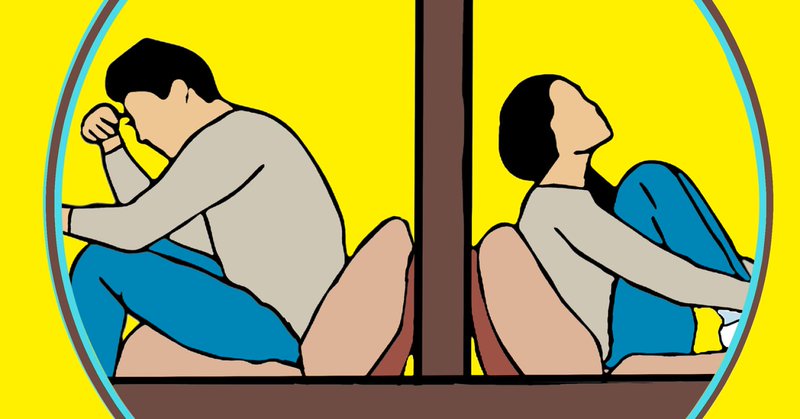
Psychology Today
@PsychToday
Followers
1M
Following
2K
Media
3K
Statuses
76K
Insight about everybody's favorite subject: Ourselves.
New York, NY
Joined March 2009
Grit is valuable, but it can also trap us in sunk costs and keep us marching to someone else’s rules. If we want to thrive instead of simply strive, we need to rethink what deserves our persistence.
psychologytoday.com
We praise grit as the key to success, but blind persistence hollows us out. Sometimes the bravest move is quitting and redirecting our goals toward exploration and fulfillment.
0
0
5
Why do some patients seem doomed to repeat turbulent relationships—and even destroy the good ones? Here's a deeper look at how personality disorders affect people's relationships and happiness.
psychologytoday.com
Why do some patients seem doomed to repeat turbulent relationships—and even destroy the good ones?
0
3
12
There may not be a definitive definition of wisdom, but here's what we do know—and how critical thinking plays a key role, according to @CogitoErgoDwyer
psychologytoday.com
Consider 'wisdom.' What comes to mind? An old man, long white beard, sitting upon folded legs, and eyes closed? Whatever it is, it likely can't exist without critical thinking.
0
3
6
When a partner is generally unhappy, it tends to leak out in ways that can sabotage their relationship. Here's how to recognize the signs so that you can do something about it, explains @DrAliceBoyes
psychologytoday.com
How to recognize when specific complaints are general unhappiness in disguise.
0
1
7
Supportive relationships can boost our physical and mental health—especially when we focus on cultivating these qualities.
psychologytoday.com
Learn how simple shifts in connection can bring more energy, clarity, and resilience to your daily life.
0
0
9
What if the AI revolution isn’t the end of work, but the start of a new Renaissance? AI and the Rise of the Entrepreneur @PsychToday
psychologytoday.com
What if the AI revolution isn’t the end of work, but the start of a new Renaissance?
0
1
4
Want a quick way to build closeness and trust with others? Try these simple meditation exercises, explains @ArashEmamzadeh https://t.co/cdQDv5IRO5
psychologytoday.com
A simple two-minute practice helped strangers feel emotionally closer. This exercise could help you strengthen your relationships.
0
5
11
"Hard" skills earn money, prestige, and power, while "soft" skills—caregiving, communication, and relational skills—are treated as optional extras. Yet they are equally important for our long-term success. https://t.co/bqIkAddMhw
psychologytoday.com
From coding to caregiving, society skews which talents matter and are compensated. The hard truth is that "soft" skills are crucial.
0
4
10
What AI models are safer to use to reduce likelihood of AI psychosis? I discuss new safety testing results for managing AI psychosis among 11 models in my latest article on @PsychToday
https://t.co/1KozwmfWvK
psychologytoday.com
New testing shows AI models differ widely in how they manage the risk of "AI psychosis."
1
5
12
Tension and release. Urgency and deep connection. Here's the psychology behind why love and music are so closely related.
psychologytoday.com
From slow jams to first dances, rhythm guides desire. Music and intimacy share the same pulse: patience, attunement, and the courage to connect.
0
1
6
Much of what drives our choices happens beneath awareness—conditioned habits, cultural scripts, lessons we’ve never examined. Yet the quality of our lives depends on how we notice and shape attention in the present moment. In this piece, we explore why attention is our most
0
6
19
All individuals with post-traumatic stress disorder have unique recovery journeys. And yet, decades of research support certain PTSD treatments as effective for the majority of individuals who engage in them. Here's what everyone needs to know.
psychologytoday.com
Learn from the latest clinical practice guidelines on PTSD; discover which treatments are the gold standard and how they can help you reclaim your life after trauma.
0
5
10
There's value in viewing personality as ever-changing and adaptive. What’s anxiety-producing today may turn out to be a source of contentment and balance tomorrow, @swhitbo explains.
psychologytoday.com
You may know by now that personality isn’t all that stable over time, but a 15-item test provides even more striking evidence about how your "state" can vary from your "traits."
0
5
9
Kindness is defined by actions taken to benefit others that carry a specific cost to oneself. New research proposes we should be able to calculate our kindness quotient. How would you score?
psychologytoday.com
We care about our neighbors 74 percent as much as we do ourselves.
1
2
7
It's long been believed that our sex lives have an expiration date. But recent data suggest that more people than you might think enjoy satisfying sex lives into their 80s, 90s, and beyond.
psychologytoday.com
64% of "super-seniors" feel satisfied with their sex lives.
0
1
6
Many emotions act like an internal compass, pointing us toward what matters or warning us when something is off. But these three, when left unchecked, can drive us toward impulsive, often regrettable, actions. Here's how to stop that.
psychologytoday.com
Some emotions do not just influence us. They take over. Discover how these emotions hijack the brain, and what you can do to reclaim control when they do.
0
8
16
With a reverse bucket list, people recall positive memories and past accomplishments. This technique grounds them in gratitude, restores a sense of personal agency, and gently recalibrates their direction. https://t.co/Xg69aQXzsy
psychologytoday.com
Three ways a shift in perspective can offer you a more empowered path forward.
0
3
12
Thoughts running wild? Don't try to stop them. Give them a new, more positive direction to go instead. @DrJeff4Help explains how.
psychologytoday.com
What if freedom from worry is not about controlling your thoughts but controlling your relationship with them? Here is how quickly you can make that all-important shift.
0
3
10
Professional athletes and bodybuilders aren't the only ones using synthetic testosterone despite the negative consequences. Here's a look inside the growing problem—and multi-billion-dollar industry.
psychologytoday.com
Steroid abuse is a growing problem in the United States and a multi-billion-dollar industry. Some users are bodybuilders, while others seek to reverse aging.
0
2
8
Strong performance doesn’t just happen. It’s cultivated through intentional habits, routine, and mental preparation. Here’s how @NBA star Jaylen Brown (@FCHWPO) does just that.
psychologytoday.com
Jaylen Brown shares how off-season rituals, recovery, prayer, sleep, and creative outlets fuel his mental resilience and set him up for NBA success.
3
8
16






















